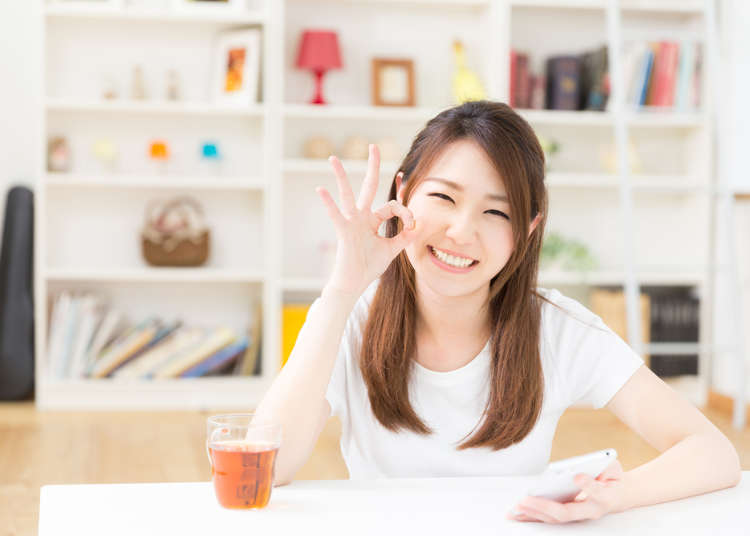
Daijōbu is a Japanese phrase that encompasses a few meanings. It can be taken as either a "yes" in certain situations, or a "no" in an entirely different one! Little wonder, then, that many foreigners find themselves perplexed about how exactly to approach this useful phrase.
By educating yourself beforehand about the variety of situations this phrase can be used in, however, you'll definitely find it easier to express yourself when in Japan and understand what your conversation partner is saying as well.
Here's a list of example sentences that will illustrate the various meanings daijōbu (大丈夫) can take on in different situations.
Daijōbu 1: Something strong, steady, safe, and sound
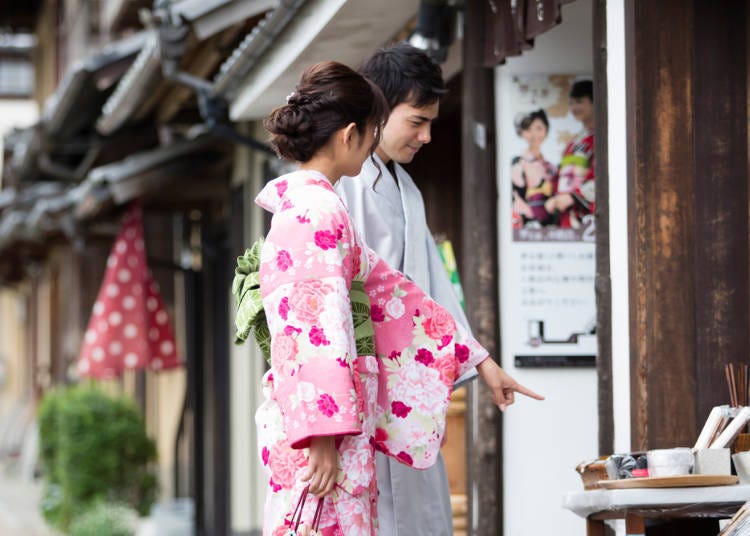
This is one of the original meanings of daijōbu. It is used to describe something that is resilient, safe, and secure.
Situation: When finding a souvenir that looks rugged enough to survive rough transport
「これは造りがしっかりしているから、スーツケースにそのまま入れても大丈夫」
"Kore wa tsukuri ga shikkari shite iru kara, su-tsuke-su ni sono mama irete mo daijōbu."
"This item looks tough enough. It should be fine for us to pack into the suitcase."
The phrase can also be used on a person - for example, someone who is reliable, trustworthy, or capable.
Situation: While looking at a dependable tour guide
「あの人に任せておけば大丈夫だね」
"Ano hito ni makasete okeba daijōbu da ne."
"We can trust him to handle things."
Daijōbu 2: Something certain and sure

This usage is for checking the time.
Situation: When checking with a receptionist whether you still have enough time until a museum's closing hours
「まだ、時間は大丈夫ですか?」
"Mada, jikan wa daijōbu desu ka?"
"Do we definitely still have time?"
It's also used when wishing for something good to happen.
Situation: Encouraging a disappointed friend who is struggling to speak Japanese better
「今度はきっと大丈夫、上手くいくよ」
"Kondo wa kitto daijōbu, umaku iku yo!"
"You'll surely get it the next time. You'll get better!"
Daijōbu 3: Checking if something is needed or not
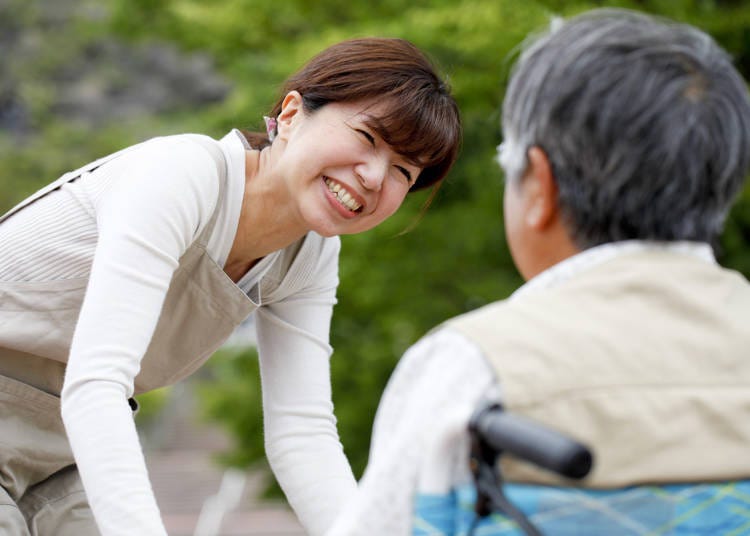
If you find someone on the streets looking for a valuable item they've dropped or feeling unwell, this phrase comes in handy to check if they need assistance.
A simple "Daijōbu desu ka (are you okay)?" is the best way to do that. If the answer is "Daijōbu desu (I'm okay)," or, "Daijōbu desu, arigatou (I'm okay, thanks)," then the implication is, "No, I don't need help."
Situation: When seeing an elderly person carrying something heavy-looking at a departmental store staircase
「大丈夫ですか?持ちましょうか?」
"Daijōbu desu ka? Mochimashou ka?"
"Are you okay? Shall I carry that for you?"
Situation: When finding someone looking confused about how to buy tickets at a train station
「大丈夫ですか?何かお手伝いしましょうか?」
"Daijōbu desu ka? Nanika otetsudai shimashou ka?"
"Are you okay? Can I help with anything?"
「大丈夫です、ありがとう」
"Daijōbu desu, arigatou."
"I'm okay, thanks."
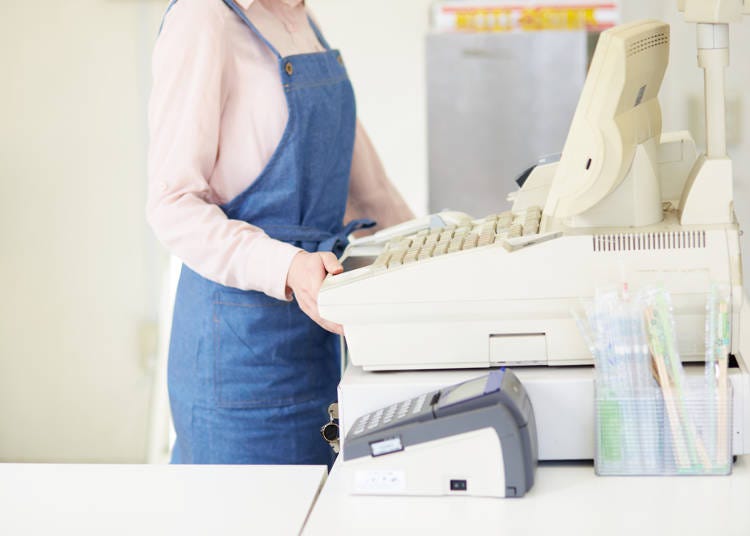
In recent years, this usage of daijōbu has become more and more common among the younger staff of restaurants and convenience stores as well.
Situation: When a waiter sees that a customer's water glass is half-empty
「お水のおかわり、大丈夫ですか?」
"Omizu no okawari, daijōbu desu ka?"
"Would you like a refill?"
Situation: After buying a bento lunchbox at the convenience store
「お箸は大丈夫ですか?」
"Ohashi wa daijōbu desu ka?"
"Would you like a pair of chopsticks?"
The "daijōbu desu ka" here can be replaced by "hitsuyou desu ka (do you need)?":
「お水のお代わり、必要ですか?」
"Omizu no okawari, hitsuyou desu ka?"
"Do you need a refill?"
「お箸は必要ですか?」
"Ohashi wa hitsuyou desu ka?"
"Do you need a pair of chopsticks?"
As such, those who don't need whatever is being offered will often reply, "Daijōbu desu (I'm okay)."
Daijōbu 4: No problem!
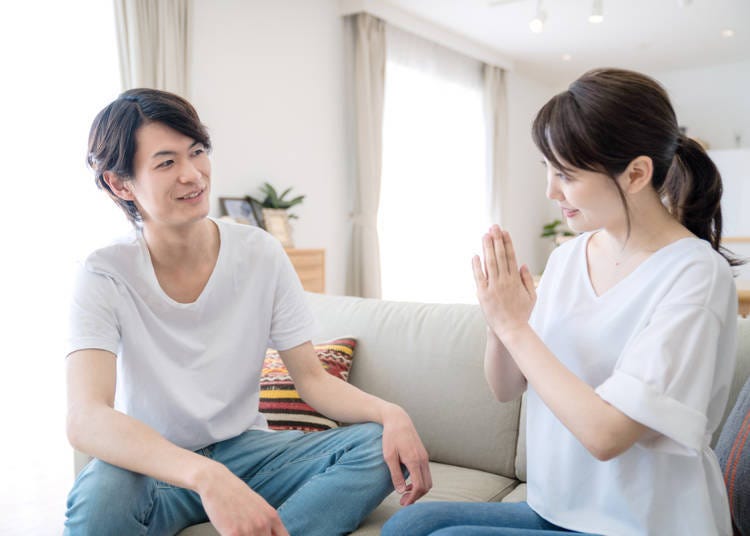
Daijōbu can carry the nuance of "no problem". The younger generation has also popularized "zenzen daijōbu (completely fine)" among themselves, which simply means "no problem at all" and is used to add stronger emphasis.
Situation: To a friend who came to a meetup late
「遅れてごめんなさい!」
"Okurete gomennasai!"
"Sorry I'm late!"
「大丈夫だよ」 または 「全然大丈夫だよ」
"Daijōbu da yo," or, "Zenzen daijōbu da yo."
"No problem," or, "No problem at all."
Daijōbu can also be used when you're feeling worried or concerned about something.
Situation: Finding out it may rain the next day, when you've planned to do some sightseeing
「明日の天気、大丈夫かな」
"Ashita no tenki, daijōbu ka na?"
"Is tomorrow's weather going to be okay?"
Situation: When seeing raw food like raw eggs on yukhoe (Korean seasoned raw beef) or other dishes in Japanese-style izakaya bars
「これは生のまま食べても大丈夫ですか?」
"Kore wa nama no mama tabetemo daijōbu desu ka?"
"It's okay to eat this raw?"
「これは生で食べても問題ありませんか?」と置き換えられます。
Daijōbu here can be replaced in such a way:
"Kore wa nama de tabetemo mondai arimasen ka?"
"It's not a problem to eat this raw?"
Daijōbu 5: Checking whether something is allowed or not
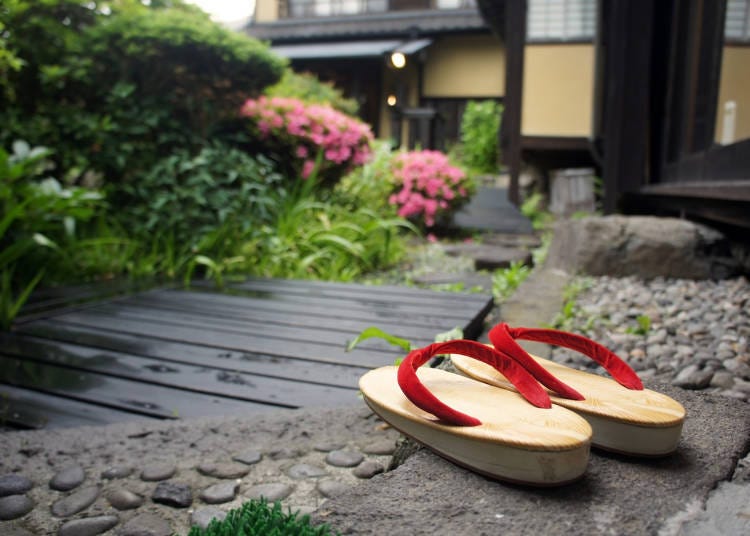
Daijōbu comes in handy when checking if something can be done or not, too. The unique Japanese culture and cultural rules can be quite confounding to a foreigner, so when in doubt, use daijōbu to check first!
Situation: When you're not sure if you can step into a Japanese-style inn with your shoes or not
「靴を脱がずにここに入っても大丈夫ですか?」
"Kutsu o nugazu ni koko ni haitte mo daijōbu desu ka?"
"Can I come in without taking off my shoes?"
Situation: When you're thinking of wearing a swimsuit into a hot spring facility
「水着を着て温泉に入っても大丈夫ですか?」
"Mizugi o kite onsen ni hatte mo daijōbu desu ka?"
"Can I wear a swimsuit into the hot spring?)
Daijōbu 6: Gentle rejection
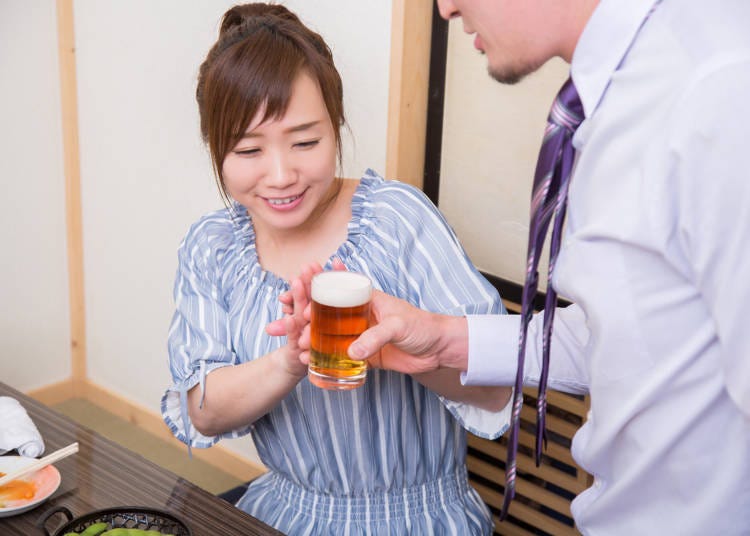
One more new usage that has developed in modern times is a gentle rejection of someone's invitation or help. This usage is more popular among the younger generation. It is a suitable phrase that implies the thought, "There's no need for you to take the trouble."
Situation: When the supermarket cashier starts putting your purchases into plastic bags
「大丈夫です、袋を持っています」
"Daijōbu desu, fukuro o motte imasu."
"It's okay, I have a bag."
Situation: When your Japanese friends ask you to try out some Japanese sweets, but it's not your kind of snack
「ありがとう、大丈夫です」
"Arigatou, daijōbu desu."
"Thanks, I'm okay."
In other words, using daijōbu in such a manner is the same as saying, "No, thank you," in English. However, because it's generally considered rude to outright reject someone who is older than you, this is a good alternate phrasing to fall back on depending on the situation.
The Japanese fear of rejection

Japanese people are said to have an aversion to clearly saying no to someone or something. The Japanese word for "no" is "iie", but you'll hardly ever hear it being used in everyday conversation, an interesting trait of the language.
For example, if someone asks, "Would you like another drink?", the other party will usually shy away from saying, "No, thanks," and instead go with, "Daijōbu desu (I'm okay)." This is because most Japanese value keeping the mood amicable, even if it has to be at the expense of not being able to state their intentions clearly.
Master the useful and convenient "daijōbu" for all occasions!
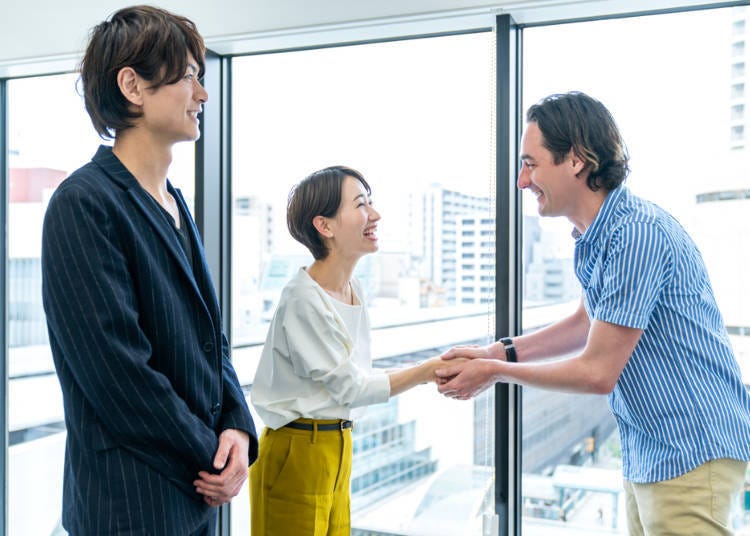
As we've discussed, daijōbu is a phrase that can be used in almost any situation. You'll hear it being spoken everywhere. To figure out how to use it to convey the proper meaning in the right context, we recommend taking into consideration the situation as well as the person's intonation and expression.
The exact workings of this phrase may not fall into place initially, but the more you expose yourself to its usage, the quicker you'll be able to wield it in conversation properly. When in Rome, do as the Romans do, right? Same for Japan! Don't be afraid to use daijōbu when the situation calls for it. It has the potential to make your time in Japan more enjoyable and comfortable than expected!
Written by: Minya. English translation by: Huimin Pan.
*Prices and options mentioned are subject to change.
*Unless stated otherwise, all prices include tax.
Popular Tours & Activitiess
Recommended places for you
-
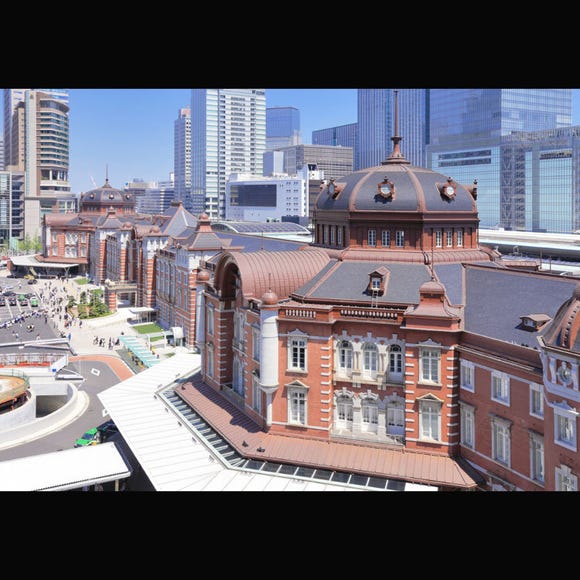
The Tokyo Station Marunouchi Building
Landmarks
Tokyo Station
-

Tsukiji Outer Market
Old Towns (Shitamachi)
Tsukiji
-

Ueno Zoo (Ueno Zoological Gardens)
Zoos, Aquariums & Botanical Gardens
Ueno
-

Shinjuku Gyoen National Garden
Gardens
Shinjuku
-

Naritasan Shinshoji Temple
Temples
Narita
-

Tokyo Metropolitan Government
Landmarks
Shinjuku
-
Ad

5 Recommended Wagyu Yakiniku Restaurants in Tokyo: Signature Dishes, Premium Beef, and Secret Sauces
-
Ad

What Makes Japanese Yakiniku So Darn Good? Guide to Cuts, Heat, and Wagyu Know-How
-
Ad

Japan’s Land of Yokai Monsters and Spooky Stories! A Deep Journey to Mysterious San’in (Tottori & Shimane) for Seasoned Travelers
-

PokéPark KANTO Is Finally Open! Tokyo's New Pokémon World Starts Before You Even Arrive (2026)
by: Guest Contributor
-

To the Holy Land of Kawaii! Odakyu Tama Center Station Is Becoming a Dreamy Sanrio Wonderland
by: Guest Contributor
-
Ad

The Latest Guide to "Tourism Mobility": Traveling Japan More Freely. What exactly are Japan’s version of ride-sharing and transit deserts?
-

Business Etiquette in Japan: 17 Definitive Tips to Do Business With the Japanese
by: Lucio Maurizi
-

Ueno Station Area Guide: Fun Ways to Explore Tokyo's Popular Destination (Area Map & Sightseeing Tips)
-

All-You-Can-Eat Yakiniku for Under 3000 Yen!? Yakiniku Fufu-tei’s Amazing Ikebukuro Menu!
by: Naho Jishikyu
-

Enjoy Halloween in Japan 2025: Shibuya & Shinjuku Restrictions and Must-See Events Nationwide
by: Guest Contributor
-

Tokyo Station Top 10 Sweets Ranking!
-

Healthcare in Japan for Tourists: What to Do When You Get Sick or Injured in Japan
- #best ramen tokyo
- #what to buy in ameyoko
- #what to bring to japan
- #new years in tokyo
- #best izakaya shinjuku
- #things to do tokyo
- #japanese nail trends
- #what to do in odaiba
- #onsen tattoo friendly tokyo
- #daiso
- #best sushi ginza
- #japanese convenience store snacks
- #best yakiniku shibuya
- #japanese fashion culture
- #best japanese soft drinks












